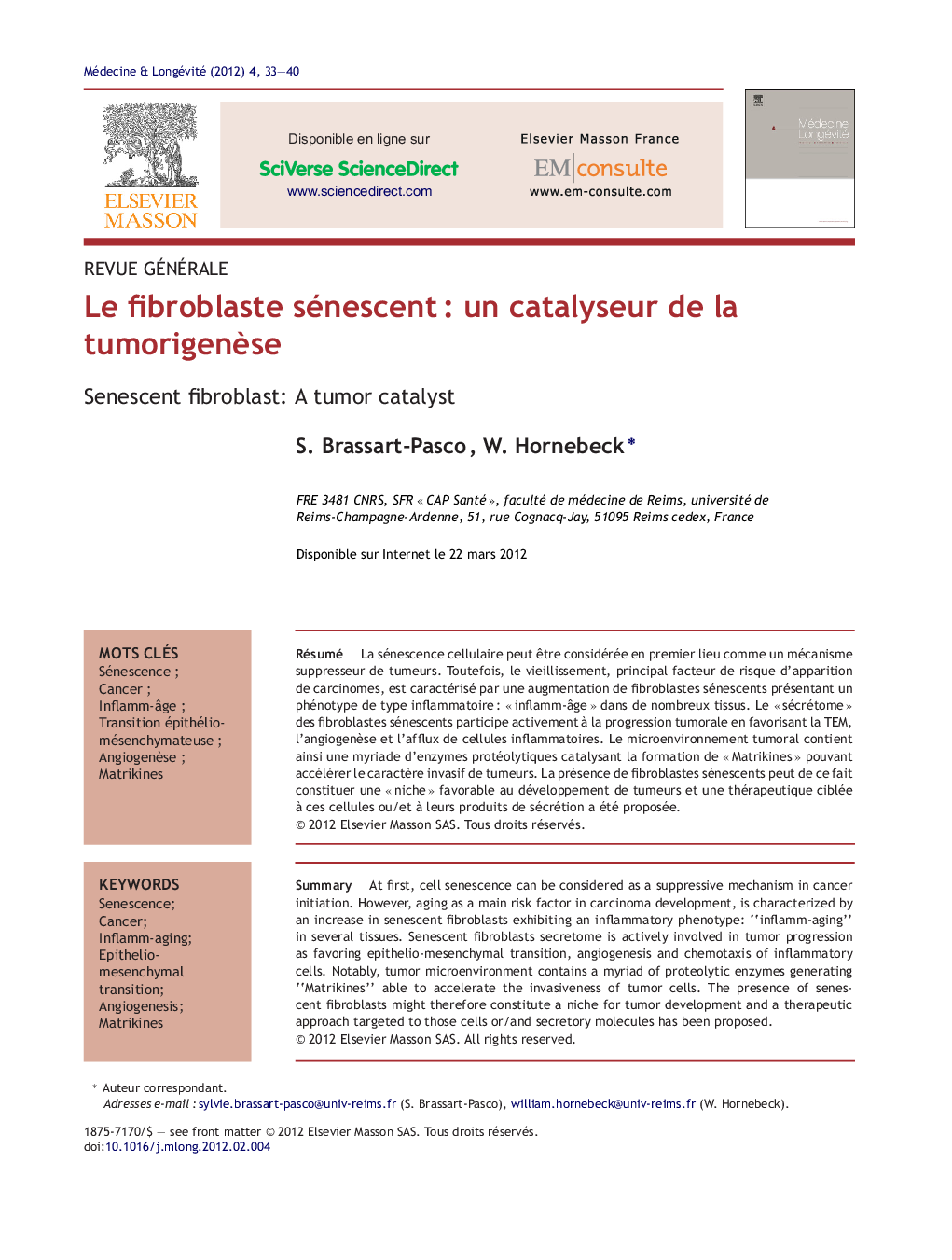| Article ID | Journal | Published Year | Pages | File Type |
|---|---|---|---|---|
| 1920113 | Médecine & Longévité | 2012 | 8 Pages |
Abstract
At first, cell senescence can be considered as a suppressive mechanism in cancer initiation. However, aging as a main risk factor in carcinoma development, is characterized by an increase in senescent fibroblasts exhibiting an inflammatory phenotype: “inflamm-aging” in several tissues. Senescent fibroblasts secretome is actively involved in tumor progression as favoring epithelio-mesenchymal transition, angiogenesis and chemotaxis of inflammatory cells. Notably, tumor microenvironment contains a myriad of proteolytic enzymes generating “Matrikines” able to accelerate the invasiveness of tumor cells. The presence of senescent fibroblasts might therefore constitute a niche for tumor development and a therapeutic approach targeted to those cells or/and secretory molecules has been proposed.
Related Topics
Life Sciences
Biochemistry, Genetics and Molecular Biology
Ageing
Authors
S. Brassart-Pasco, W. Hornebeck,
